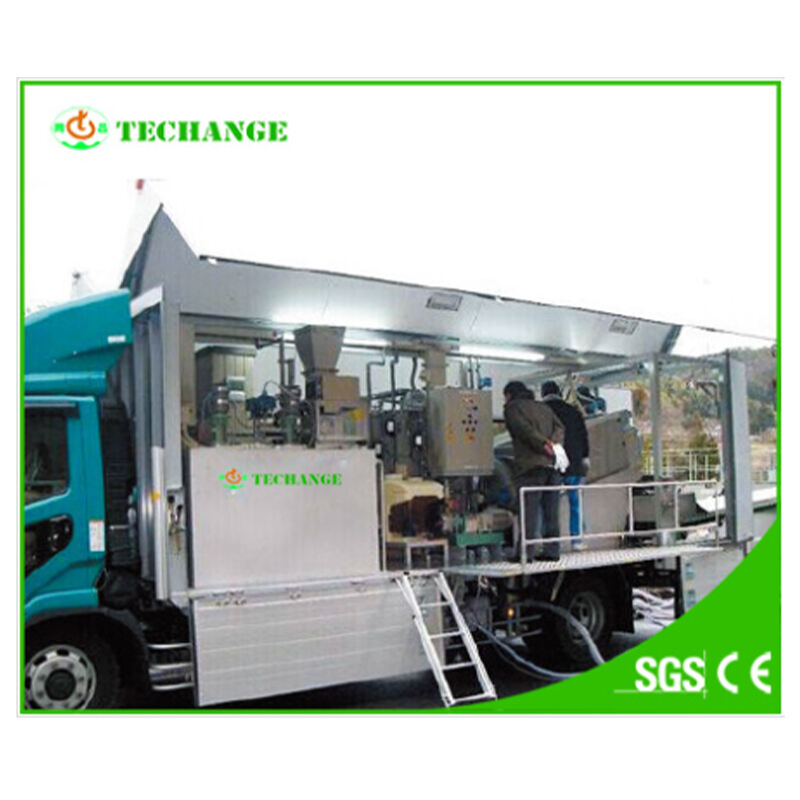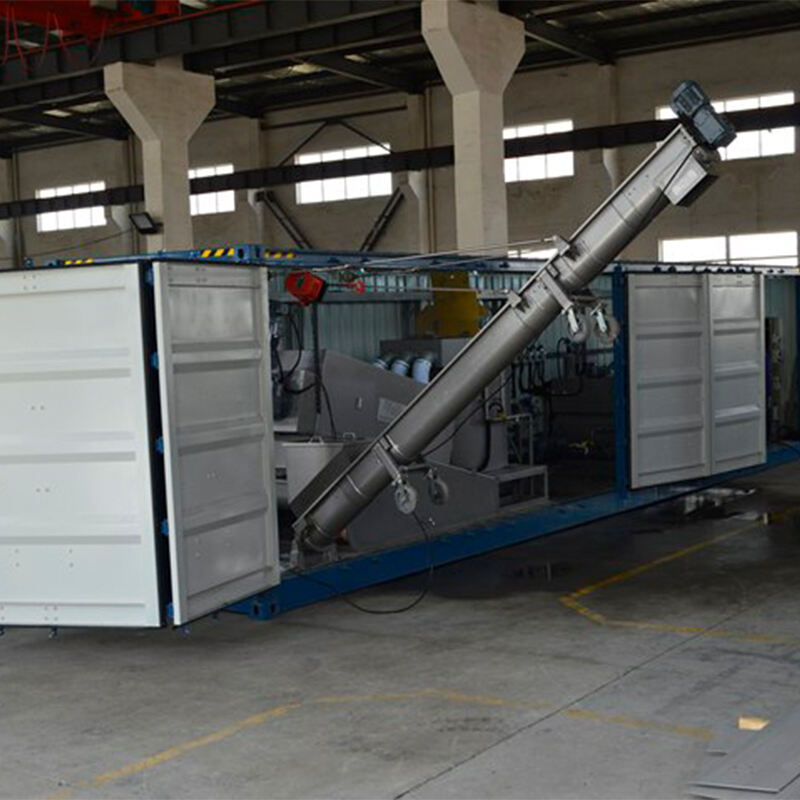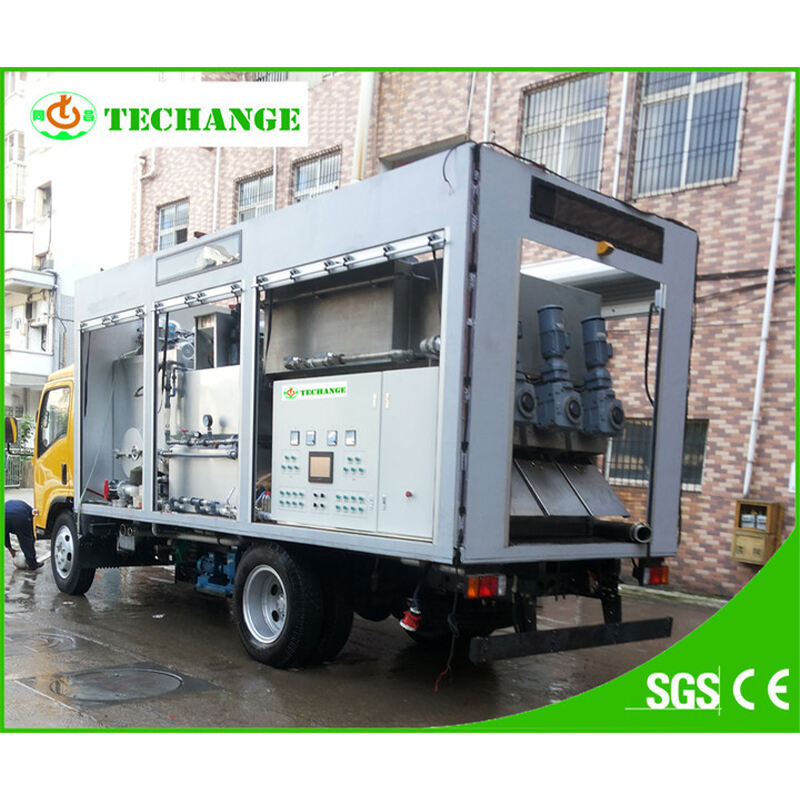The same is true of: Centrifuge Sludge Dewatering; the treatment and conservation of wastewater are vitally important. As the volume of waste generated increases, it has to be dealt with in a way that requires more than just better refuse management and minimisation of its impact on the ecosystem. In this article, centrifuge sludge dewatering will be highlighted as one of the most critical process that not only enhances operational performance but also plays a key role in economic resilience and ecological preservation among other used technologies. This discussion provides a deep dive into the centrifuge state of the art, including how it works, economic and sustainability benefits which can be achieved by effective waste processing, key features to advance systems for just such purpose as well as advanced dewatering technology enabling conversion of materials considered by many only valuable in disposal tipping fees.
A centrifuge sludge dewatering is a process that makes use of the power of centrifugal force to segregate solid particles from liquid in the sludge. The centrifuge, which works by spinning at high speeds, removes water from the sludge to concentrate solids and produce a more manageable volume of waste. This method can dewater much faster than traditional methods (such as gravity thickening or filters presses). Moreover, this attribute helps the tower perform flawlessly so that it can run smoothly and have minimum downtime. This results in increased productivity and lower energy consumption per processed quantity of sludge.

The benefit of this and all other applications is that centrifuge technology adds to the economic viability of waste management strategies. This translates into lower waste transportation and disposal costs due to less sludge requiring transport offsite. Secondly, the sludge itself that is concentrated often has a higher market value because it can be used as fertilizer or fuel and hence becomes an income stream around which to build more reliable faecal treatment facilities. On the other hand, it highlighted that their more advanced centrifuges are built to be robust and have less need of maintenance compared with other systems - meaning they were cheaper to run over time. Centrifuge sludge dewatering stands as the method that has made significant economic sense due to these benefits, on top of recovering more resources.

Modern waste management practices revolve around sustainability and here centrifuge technology has a huge part to play in achieving these goals. The decrease in the volume of sludge reduces the need for landfills, which allows to save valuable lands. Additionally, The process allows the reuse of water in the wastewater treatment plant and helps to save costs instead of discharging it that will help for conservation fresh water resources. Concentrated sludge can also be converted into biofuels or compost, supporting circular economy ideas and reducing GHG emissions related to conventional waste disposal practices. This means that waste is processed in a more ecologically sustainable way by centrifuge sludge dewatering.

Sludge dewatering in advanced centrifuge systems is improved by numerous innovations that improve performance and flexibility. These include:
2-Variable Speed ControlTo maximize dewatering efficiency and minimize power consumption, We offer 65~85Hz frequency controller not just to verify the performance details of SJ but also improve actual operation over pump sludge.
Automated Process Control Sensors and programmable logic controllers (PLCs) are equipped to monitor and control parameters such as feed rate which ensures quality output consistently, and minimizes the need for operator intervention.
Energy Recovery Systems: These systems store and recuperate the braking energy generated during deceleration phases, thus reducing global energy consumption.
Simple service design which allows easy cleaning and maintenance of components to reduce down time.
Adapting Discharge Systems- These types of systems adapt to various sludges, so they can dewater continuously and properly without any clogging or pause.
Our technical staff will give appropriate centrifuge sludge dewatering for the selection products before engineering design. helps maximize benefit each product during the construction of the projects.
Jiangsu Techange Environmental Sci-Tech Co., Ltd., founded on October 8 08, 2008. a specialist in wastewater treatment machinery exportation since 2009. firm is a manufacturer and designer of wastewater-treatment machines in Yangzhou, Jiangsu. have already earned an excellent reputation have a centrifuge sludge dewatering market presence in Europe, North America, and Asia.
will meet your needs and those of relevant specifications. will plan and build centrifuge sludge dewatering and equipment in a superior way and will check the quality of equipment purchased.The product will be covered with a 1-year warranty free. After that, customer is able to continue receiving after-sales support for as long as they like with only the cost.
Our CNC machine laser cutting and bending are at forefront of technology that allows us to ship our products in time and according to your requirements.Our team is made up of highly educated professionals with advanced degrees in environmental science, engineering other related fields. Many staff members possess over 10 years of experience in research and development. have developed numerous patents for company.
Advanced centrifuge technologies are transforming waste to resource conversion Installed as downstream systems, advanced technologies concentrate more sludge and enhance its amenability to processing in anaerobic digesters where biogas — a renewable energy source — can be generated. This produced a sludge cake that is high in organic material and which can be used as such to condition soil, or it may also be pelletized for use as an extended-release fertilizer. These methods are allowing wastewater treatment plants to transform from cost centers into resource recovery hotspots, proving that responsible sludge management is not just better for the environment but also financially feasible.
To sum up, the emergence of centrifuge sludge dewatering is an essential means in contemporary sewage treatment with a balance among efficienciness and economy well as environment friendliness. This makes it essential in our journey towards a circular economy model, helping us reduce cost and generate savings by simplifying processes while advancing resource recovery. In a world of limited natural resources, centrifuge technology clearly has an important role to play in addressing the global challenges facing waste management and highlights how essential it is for creating sustainability.